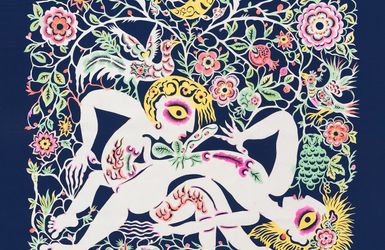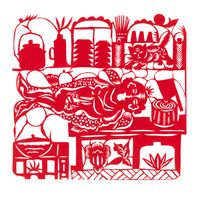
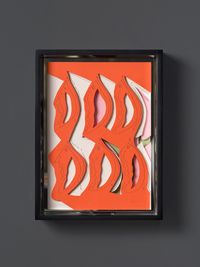
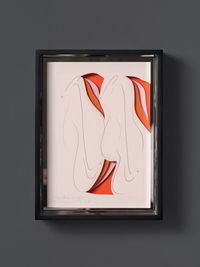
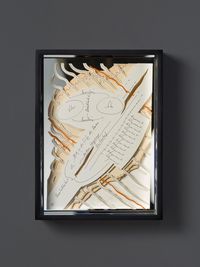
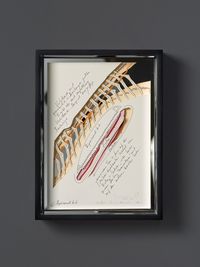
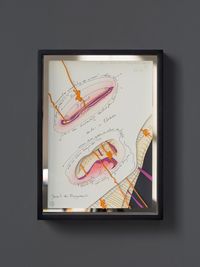
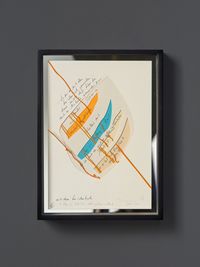
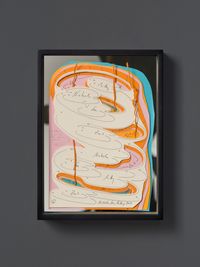
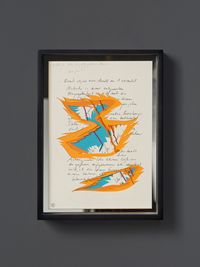
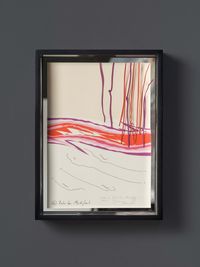
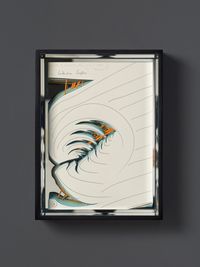
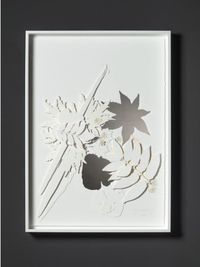
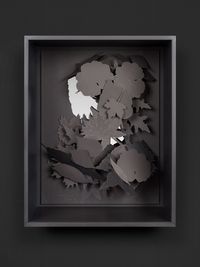
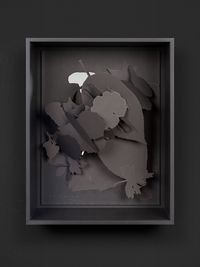
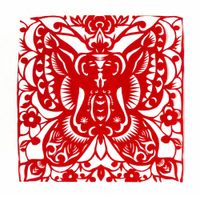
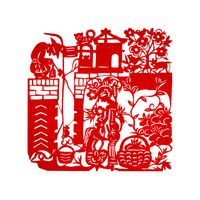
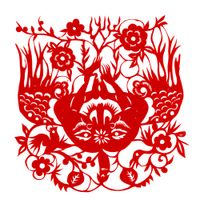
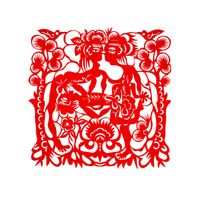
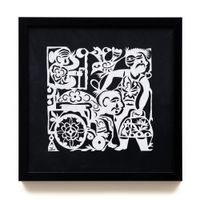
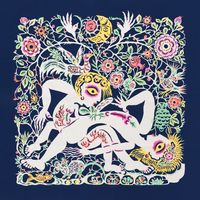
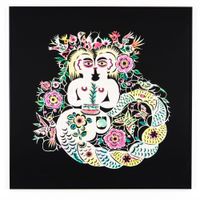
Every present form tells of its own past. - Jorinde Voigt
In the exhibition 2.0 featuring Jorinde and Xiyadie, paper transcends its two-dimensional origins, becoming the silent narrator telling tales of delicacy, rebellion, and existence. The title of the show comes from several meanings; the exhibition is the first in the gallery's new space 2.0, the show being two artists, and the binary symbolism behind the numbers, 2 representing existence and material and 0 representing absence or the subconscious. The overlap of these artists practices is predominantly material, but presenting them alongside one another brings out conceptual overlap, allowing alternate readings of each artist's works. For both artists the fragility of each cut or fold becomes a poetic marker of time, capturing moments in the evolution of the artwork. Additionally, the overlapping echoes of both artists' practices lies a share exploration of ecological representation. Jorinde's abstractions featuring three leaves convese with Xiyadie's organic masses infused with fauna and flora, with paper at the center of their works becoming a conduit for the interconnectedness of life.
Maurice Merleau-Ponty's philosophical assertion that perception and bodily existence are inseparable, finds resonance in Xiyadie's intricate papercuts depicting queer love.1 Through tangible materials and labour-intensive papercutting, he engages viewers in a sensory and embodied experience, transforming perception into an active, dynamic engagement with the world. His works affirm that history is lived and can be reinterpreted.
Looking through Jacques Derrida's lens on the role of the archive, Jorinde's paper constructions unfold as metaphors for layers of memory.2 Each meticulous cut creates visual archives in three dimensions, carrying traces of absence and the potential for new forms. The repetition and transformation in her works evoke the archival nature of memory and the tension between our lives and experiences and the subconscious, where narratives and ideology are built upon layers of experiences.
Comparably, Xiyadie challenges dominant narratives through traditional Chinese paper-cutting techniques, crafting a counter-archive documenting queer life in China. He activates our desire for the archive to bridge the psychic gap between something material and virtual, materialising a memory either imagined or real. By choosing paper as his medium, he questions and subverts societal and political pressures, engaging with the materiality of the archive itself.
Materials having their own narratives aligns with Jorinde's engagement with paper. The fibres, texture, and colour of the paper become active agents in the narrative, allowing the material to express its own story through her craftsmanship, dramatically underscored by the reflective mirrors she uses alongside the layers of paper. Similarly, Xiyadie's use of paper connects with historical and cultural narratives, adding layers to his works that contribute to subversive cultural naratives.
In the exhibition, reconceptualisation of archives and the explorations of material narratives converge to offer a nuanced understanding of how paper, as a material, becomes an active participant in shaping and expressing personal and collective histories through the works of Jorinde and Xiyadie. Both artists, through their engagement with paper, participate in a form of archiving, be it of cultural narratives or conceptual explorations.
1 Maurice Merleau-Ponty was a French 20th century philosopher who theorised that our perceptions are inherently embodied; the body and the world it inhabits its fundamental to our understanding and experience of reality. Merleau-Ponty, Maurice. Phenomenology of Perception. 1st ed. New York: Routledge, 2013.
2 Jacques Derrida proposed in this text that the archive is built on the tension between preservation and destruction, and its relationship to technology, human memory and the subconscious. His argument is that archives emerged in private places, but were preserved to bolster government power, becoming a mechanism to shape and enforce ideology. Derrida, Jacques, and Eric Prenowitz. 'Archive Fever: A Freudian Impression.' _Diacritics _25, no.2 (Summer, 1995): 9–63.
Press release courtesy P21.
66, Hoenamu-ro
Yongsan-gu
Seoul, 04346
South Korea
p21.kr
+82 2 790 5503
+82 2 790 5504 (Fax)
Tuesday – Friday
11am – 6pm
Saturday
12pm – 6pm
